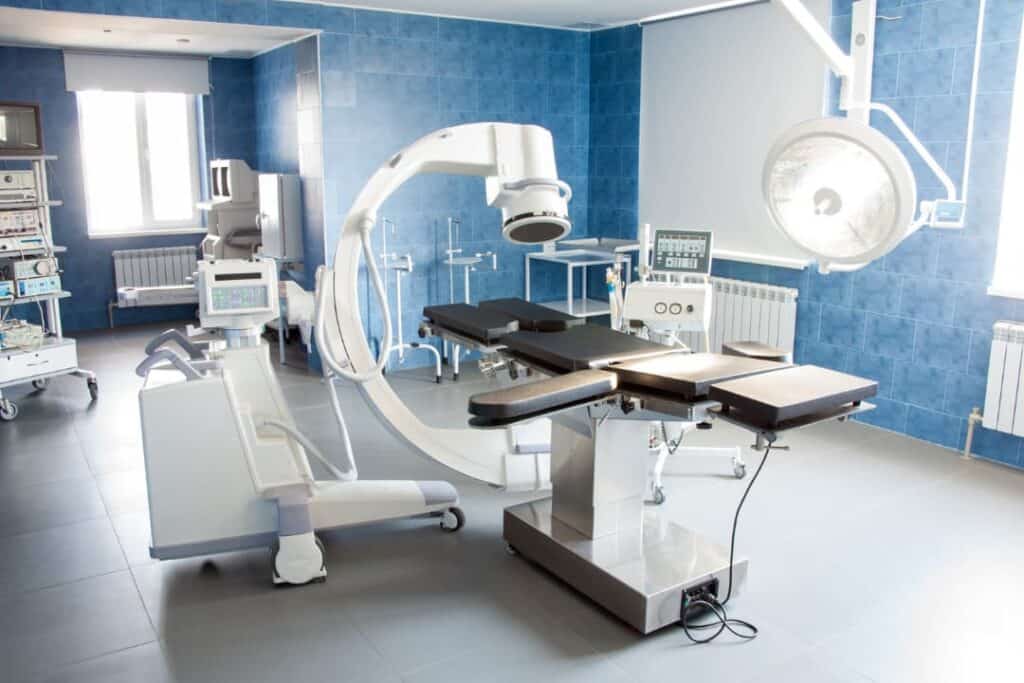6 Tips for purchasing medical equipment for hospitals and clinics

Despite a daunting task, medical and healthcare practitioners must be careful while buying suitable medical equipment for hospitals & clinics to ensure the high quality that translates to better patient care delivery.

Are you looking forward to purchasing appropriate medical equipment for your healthcare facility? Or do you wish to upgrade already installed medical equipment?
If yes, consider some of the relevant factors in this article.
1. Ensure the Quality
Quality is an important factor that must be considered before buying medical equipment for hospitals and clinics. The safety of the patients depends on it, and you should never compromise on this. Good quality equipment is essential to ensure that the equipment lasts long and works appropriately.
This is why you should always check the brand of the medical product and its certification before buying it. A certified piece of equipment helps assure that the device has passed all necessary tests and can be used without any worries regarding its safety. This is also why you should stick to brands that are reputed in manufacturing such products, as they will ensure the maximum efficiency, effectiveness, and durability of their products.
2. Choosing the budget for medical equipment
When purchasing medical equipment, choosing a budget is the first step. It can be tempting to try and buy all of the state-of-the-art equipment available when opening a hospital or clinic, but this is not always cost-effective. Instead, you should set specific budgets for each piece of equipment and allow those budgets to inform your decisions. Some hospitals also choose to split their funds by department so that more money can go toward patient care instead of administration or maintenance. No matter how you choose to allocate your funds, we recommend buying the best equipment that your budget will allow.
3. Consider After-Sale Services with each Purchase
Before making a final decision, consider the after-sales services of each product or device. It’s essential to think about maintenance, repair, and replacement when making a large purchase. In most cases, it’s best if the company provides these services in-house because they will be able to provide the best repair service. If a problem arises and you have to wait for repairs from an outside company, your patients will likely be inconvenienced, and you can lose business.
In addition to this, make sure that the product you choose has good customer reviews. When selecting a product or supplier, check their reputation and read reviews on their products online if possible. You don’t want to purchase something only for it to stop working shortly after installation. This is especially true if it’s not easy to fix or replace this item without replacing the entire unit.
4. Technical Expertise
Technical support
A supplier with a team of specialized technicians who can provide technical support and troubleshooting will help keep your equipment running.
Experienced team
When you choose a medical equipment supplier, you want to be sure that the people selling the devices have experience working in healthcare. A reputable supplier should be able to demonstrate their extensive knowledge of their products and how they can benefit your facility.
Specialized technicians and trained engineers
Look for a supplier that has a network of specialized technicians on call at all times so they can help troubleshoot any issues that may come up during or after installation or if there is ever an issue with your device down the line. That way, you’ll always have someone available to assist when needed. And these specialists shouldn’t just be available by phone either—they should be available on-site too! This way, they can assess any problems immediately without disrupting patient care or requiring in-house staff members who may not know what’s happening with their machines yet.
5. Convenient Purchasing
If you are a hospital or clinic planning to buy medical equipment, make sure that the manufacturers or suppliers can deliver the products to your location. It is also important that they can install the equipment and provide training to your staff on how to use them properly. This will guarantee a smooth and uninterrupted transition from your old system to the new one. The company should also have ready technical support in case of problems with their products. They should also be able to offer service contracts and spare parts for their equipment.
6. Customer Satisfaction
Customer satisfaction is the number one priority. As a hospital buyer, your customers are the patients that you serve every day. When it comes to purchasing medical equipment, your highest priority should be ensuring quality products for your patients. Don’t settle for second-rate products. If a piece of equipment isn’t functioning properly, or if a product keeps breaking down, your patient’s experience will be compromised. Still, you will also incur the hidden costs of repairing or replacing the item regularly.
When making any major purchase decision (whether it’s a home or cell phone), what is one of the most significant factors influencing your decision? While many people may consider price first and foremost, there are other important considerations, such as customer satisfaction and warranty coverage, which can provide invaluable peace of mind and long-term savings when making any big purchase decision.
Vasith Faisal is the Medical Equipment Expert at Abonemed LLC. With a background in Computer Science Engineering and a wealth of experience in the healthcare industry, Vasith is well-versed in the latest technologies and trends in medical equipment. He has a proven track record of driving successful initiatives that drive growth and engagement, and is known for his innovative, data-driven approach and his ability to lead high-performing teams. Whether you’re looking for advice on the best products for your healthcare facility or you need support with maintenance and repairs, Vasith is here to help.
